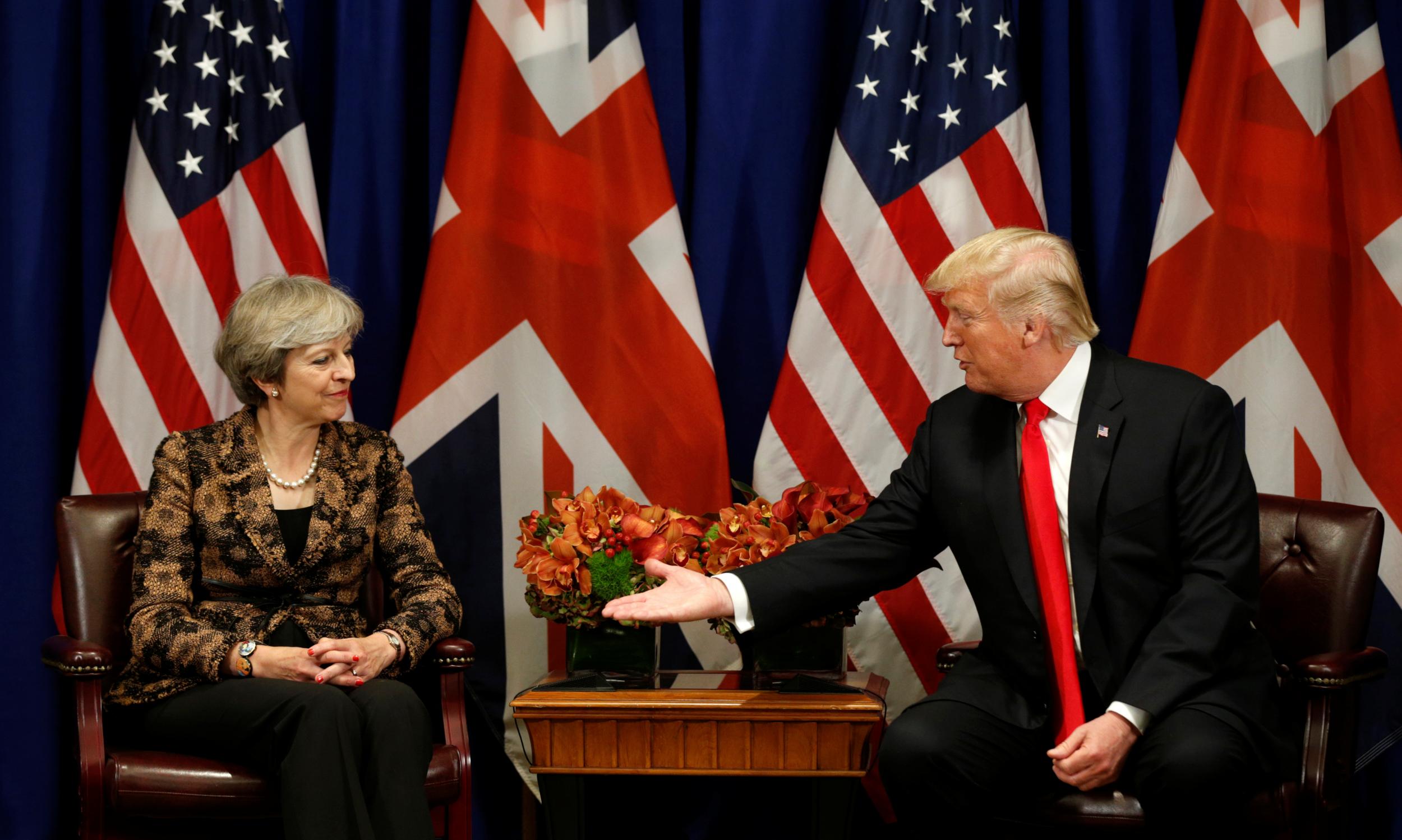Why is Brussels fighting Trump's America on Britain's behalf in Bombardier trade dispute – even though it's leaving the EU?
Is this intervention actually likely to help? And what are the Brexit implications?

The European Commission has backed the UK in its tariff battle with the United States over the export of C-Series Bombardier jets, whose wings are manufactured in Northern Ireland.
The commission submitted a “case brief” addressed to the US Secretary of Commerce Wilbur Ross on Tuesday in defence of Britain, which stands accused by America of providing Bombardier with unfair subsidies.
“This investigation shows significant shortcomings, both regarding the findings as well as concerning the methodologies applied,” the commission said in its submission.
“The commission also has strong doubts that the methodology applied for the establishment of the [300 per cent] duty level is compatible with World Trade Organisation rules.”
But why is Brussels assisting the UK when we are leaving the EU? Is this intervention likely to help? And what bearing does all this have on Brexit?
Why is Brussels helping Britain?
Because we are still – at this moment – a full member of the European Union and entitled to draw on all the resources of the EU, including in relation to trade disputes.
“[The UK is a member] until the very day they leave, so, of course, there is absolutely no discrimination or distinction here,” says the EU trade commissioner Cecilia Malmstrom.
The commission is also, technically, not just helping the UK but a major French-headquartered company too.
After the US unveiled its 300 per cent tariffs on C-Series jets in September the Canadian plane maker Bombardier announced it was selling a 50 per cent stake in the C-Series to the European aviation manufacturing giant Airbus.
Another reason why the EU might be keen to be active in this case is the Northern Irish dimension.
Bombardier is a significant private sector employer in Northern Ireland, responsible for 4,200 jobs.
A key element in Brexit Article 50 negotiations is the prevention of the return of a hard land border in Ireland as the UK leaves the customs union. This threatens damaging economic effects on both sides of the border.
By taking the Bombardier case seriously, the commission is indirectly signalling to the UK that it is deadly serious about the economic welfare of Ireland. That might further strengthen the EU side in the Brexit talks.
But will the EU trade intervention actually help?
US President Donald Trump has repeatedly asserted that the US is being ripped off by foreigners over trade.
The case brought by Boeing against Bombardier really has little merit and, given the huge effective state subsidies the American company receives, smacks of gross hypocrisy*.
The fact that the US has slapped on these punitive tariffs despite the dubiousness of the case suggests that the Trump administration is actively looking for a trade fight, perhaps for domestic political reasons.
That suggests a case for pessimism about whether this EU intervention will have much effect.
Yet, the EU is a big importer of US goods and manufactures. If the EU ultimately imposes painful tariff counter-measures against Washington – or threatens them – it’s possible the US might back down.
Does this show the folly of Brexit?
It certainly underlines the advantages of being part of a large, unified, trade bloc.
The EU economy ($17.1 trillion, £12.9 trillion) combined is actually almost as large as that of the US ($18.6 trillion, £15 trillion), giving it more leverage in disputes than individual members (even large ones such as the UK) acting alone.
Large blocs are better able to stand up to bullying and arbitrary behaviour from others.
“[The Bombardier dispute] could well turn out to be a lesson for the UK,” suggested the Irish Prime Minister Leo Varadkar in September.
There may be some lessons about trade deals too.
The EU collectively has negotiated more than 50 commerce treaties with other countries around the world, from South Korea to Mexico, all benefiting the UK.
One of the biggest, and under-reported, challenges of Brexit will be the need for the UK to re-establish all these treaties on a bilateral basis. That will be time consuming and by no means straightforward.
But will it be worth it? Brexiteers argue that the EU has not been active or ambitious enough in negotiating these kind of trade deals and that Britain, acting alone and outside the EU, will do much better in future.
Yet the reality is that large countries and trading blocs tend to prioritise doing deals with other large countries and trading blocs.
When it comes to trade deals, as in disputes, size matters.
* A representative of Boeing responds to defend its case: “The laws governing global trade are transparent and well known. These duties are the consequence of a conscious decision by Bombardier to violate trade law and dump their C-Series aircraft to secure a sale. This dumping in our home market was not a situation Boeing could ignore, and we’re now simply asking for laws already on the books to be enforced. Despite the recent rhetoric regarding these proceedings, this case continues to focus on preserving a level playing field in the aerospace market and adherence to the globally accepted agreements governing free and fair trade.”
Subscribe to Independent Premium to bookmark this article
Want to bookmark your favourite articles and stories to read or reference later? Start your Independent Premium subscription today.

Join our commenting forum
Join thought-provoking conversations, follow other Independent readers and see their replies